24M presents direct recycling process for batteries
The process called ’24M Liforever’ keeps the active materials in their original form and does not produce black mass. It enables the cost-effective recycling of all active materials from the anode (graphite) and cathode (NMC, LFP, NCA, etc.). After recovery, the active materials are subjected to low-cost cleaning and, if necessary, re-lithiation to restore their original capacity, according to 24M.
In “conventional” battery recycling, materials such as plastics (often not reusable) or recyclable metals such as aluminium and copper are first separated after discharging and shredding. At the end of the process is the so-called black mass, a mixture of the battery’s active materials. The black mass is then broken down into its original components using chemicals. New cathodes and anodes can then be produced from the material obtained.
The advantage of this hydrometallurgical process is that the materials can be remixed during the production of the new cathode – an older NCM622 cell chemistry could, therefore, become an NCM811 cell. In direct battery recycling, the cathode material is not split into its components, so the composition remains the same after recycling. However, as several energy-intensive work steps are involved in splitting and reforming, the process is cheaper and more environmentally friendly.
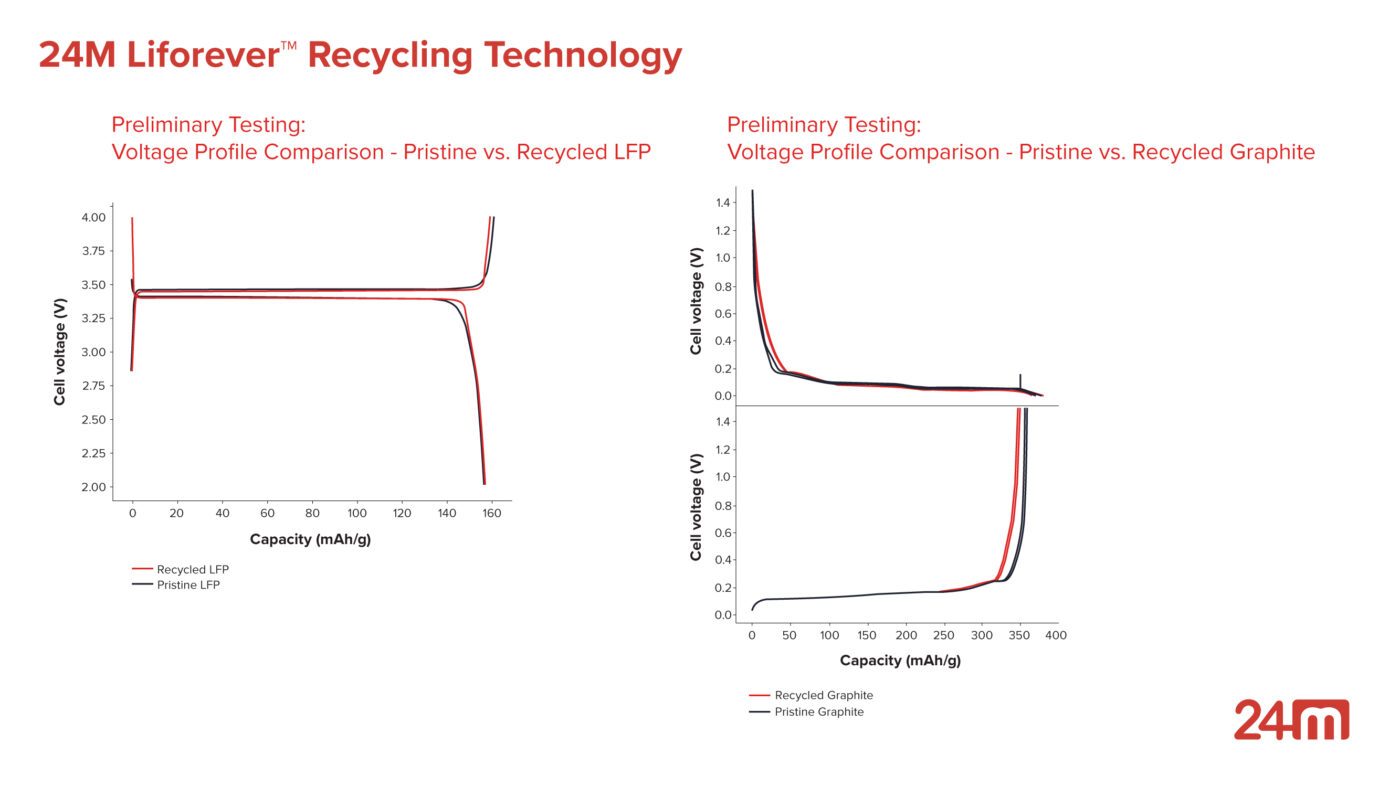
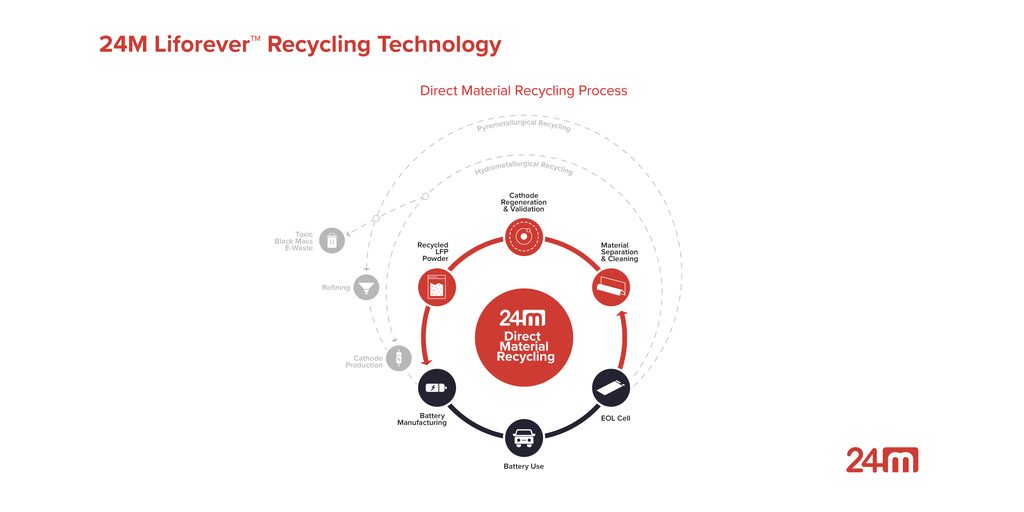
24M also points out that due to the cost of hydrometallurgical (and pyrometallurgical) processes, only NMC cells are usually recycled to obtain expensive materials such as nickel, manganese and cobalt. “Less expensive materials like LFP are typically not recycled,” says 24M. With its cheaper direct recycling, the company also wants to be able to utilise LFP cells – and has therefore also used LFP cells for its demonstrator.
“Better battery recycling is essential for a sustainable energy future, but the use of binders in conventional cell production has made direct recycling impractical,” says 24M CEO Naoki Ota. “Liforever solves these challenges by enabling the reuse of nearly every part of the battery cell without requiring the expensive, inefficient and environmentally challenging processes used in conventional cell recycling. These cost savings are further optimised by our streamlined SemiSolid technology, which eliminates half of the steps used in conventional cell production.”

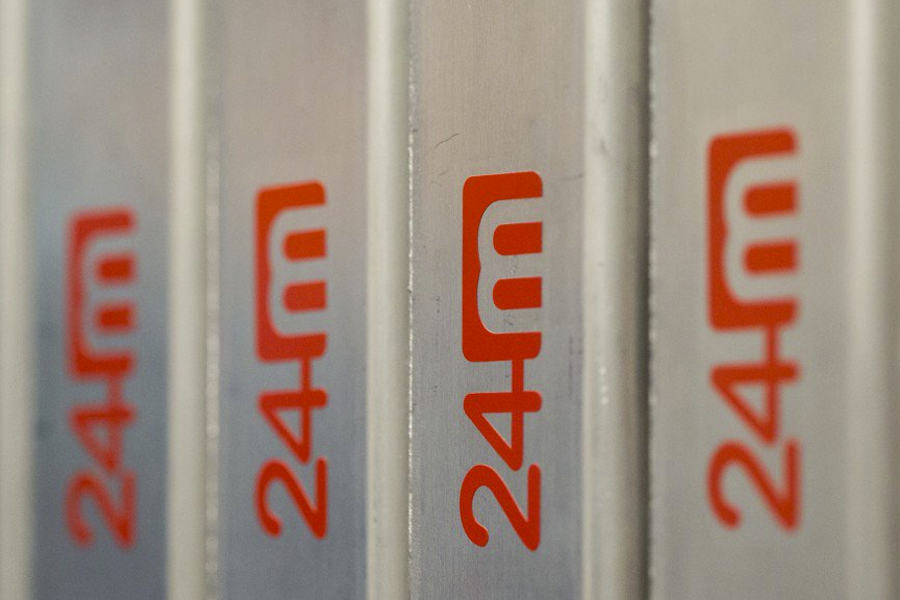
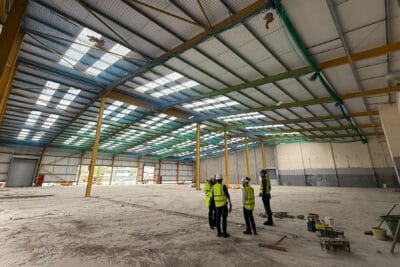
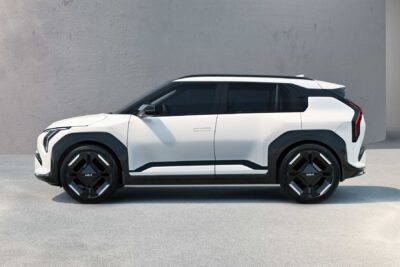
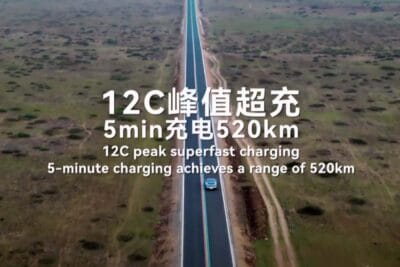
0 Comments